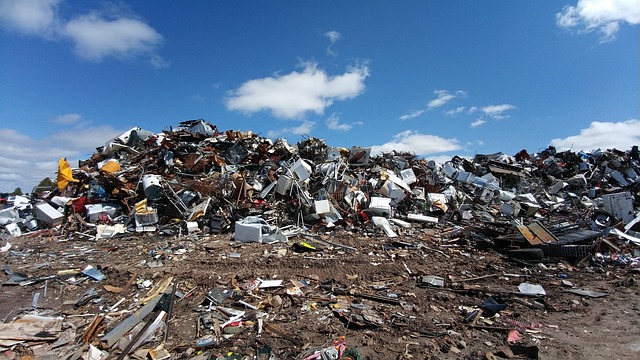BS EN 12512 Waste Toxicity Characterization
The BS EN 12512 standard provides a framework for characterizing waste toxicity by means of daphnid (water flea) lethality testing. This service is crucial for the waste management and recycling sector as it ensures that hazardous and industrial wastes are properly classified, managed, and disposed of in compliance with international standards.
The test procedure involves exposing Daphnia magna to the sample under controlled conditions over a period of 48 hours. The toxicity is then determined by observing mortality rates among the daphnids exposed to different concentrations of the waste material. This process allows for quantitative assessment and classification of hazardous substances, which are critical steps in managing industrial and municipal wastes responsibly.
The BS EN 12512 method ensures that waste materials are accurately characterized according to their potential environmental impact. By conducting this test, laboratories can provide data essential for regulatory compliance, risk assessment, and informed decision-making regarding waste handling practices. The results help ensure that hazardous materials are managed safely, reducing the risk of contamination in the environment.
Accurate characterization also supports the recycling industry by enabling better sorting and processing of mixed waste streams. This service contributes to sustainable waste management strategies by facilitating the safe reuse of materials while minimizing environmental impact. Compliance with BS EN 12512 is essential for industries that generate significant amounts of hazardous waste, ensuring they meet stringent regulatory requirements.
Our laboratories are equipped with state-of-the-art facilities and experienced personnel who can perform this test rigorously according to the standard's specifications. This ensures reliable results that are accurate, reproducible, and credible. Our expertise in this area allows us to provide comprehensive support and guidance throughout the testing process, ensuring clients meet all necessary requirements.
The BS EN 12512 method is widely recognized for its reliability and precision. It provides a standardized approach to assessing waste toxicity, which enhances confidence in test results across different laboratories. This consistency is vital when dealing with international trade agreements or cross-border waste management practices.
Our service not only meets the stringent requirements of BS EN 12512 but also integrates best practices and latest advancements in analytical techniques. We offer detailed reports that include all relevant data points, ensuring a thorough understanding of each sample's toxicity profile. This information is invaluable for stakeholders involved in waste management, regulatory compliance, and environmental protection.
By offering this service, we contribute to the broader goal of sustainable development within industries dealing with hazardous and industrial wastes. Our commitment to quality and accuracy ensures that our clients can trust us to deliver reliable results that support informed decision-making processes.
Applied Standards
The BS EN 12512 standard is primarily applied in the context of characterizing waste toxicity for regulatory compliance purposes. This standard specifies a method using Daphnia magna as the test organism to assess the acute toxicity of various wastes.
- Scope: The scope of this service includes testing industrial and municipal wastes, including hazardous substances, to determine their potential environmental impact.
- Samples: Samples tested can be solid, liquid, or semi-solid materials from different sources such as manufacturing plants, waste treatment facilities, and landfills.
The BS EN 12512 method is designed to provide consistent results across various laboratories by standardizing the exposure conditions for Daphnia magna. This ensures that toxicity assessments are reliable and comparable internationally.
Our laboratories follow all prescribed steps meticulously, from sample preparation to data analysis, ensuring accurate characterization of waste materials based on this internationally recognized standard.
International Acceptance and Recognition
- Regulatory Bodies: The BS EN 12512 method is widely accepted by regulatory authorities in Europe and beyond, including the European Commission and national standards bodies like BSI (British Standards Institution).
- Trade Agreements: This standard plays a crucial role in facilitating international trade of hazardous waste materials between countries. Compliance with BS EN 12512 ensures that shipments meet stringent environmental protection requirements.
The global acceptance of the BS EN 12512 method underscores its importance in maintaining high standards of environmental safety and compliance. By adhering to this standard, industries contribute to reducing risks associated with improper waste handling practices.
Our laboratories are dedicated to ensuring that all tests conducted meet these stringent international requirements, thereby supporting clients' efforts towards sustainable business practices and responsible management of hazardous wastes.
Use Cases and Application Examples
- Industrial Waste Management: This service is used by manufacturers to assess the toxicity levels in their industrial waste streams before disposal or recycling. Understanding these levels helps in developing effective mitigation strategies.
- Municipal Solid Waste Characterization: Municipal authorities use this testing method to determine the composition and potential hazards of mixed waste collected from households, contributing to better planning for waste reduction programs.
In addition to regulatory compliance, BS EN 12512 waste toxicity characterization supports research in environmental science, helping scientists understand how different types of waste interact with aquatic ecosystems. This knowledge is crucial for developing new technologies aimed at reducing the overall impact of industrial and municipal wastes on natural environments.
Our team provides expert advice on interpreting test results and using them effectively within broader waste management strategies. Whether it's optimizing recycling processes or ensuring proper disposal methods, our services play a vital role in supporting sustainable practices across various sectors.





